''Business Model of Croatian Tourism is Unsustainable''
As Lea Balenovic/Iva Grubisa/Novac writes on the 17th of April, 2019, Croatian tourism's current business model is unsustainable and has some serious challenges, according to Emanuel Tutek, a partner at the Horwath HTL consulting house, who stated this at the very beginning of a conference on the challenges of the Croatian tourism sector at Edward Bernays High School, the co-organiser of which was Jutarnji list.
Since 19 percent of Croatian GDP comes either directly or indirectly from tourism, the unsustainability of the system is a more serious issue, he added.
''First of all, our tourism is an extremely seasonal sector and as much as 86 percent of all tourism activities in Croatia take place during the summer months. It's also problematic that 96 per cent of these activities are realised on the coast and in Zagreb. In translation, this means that we have plenty of room for progress and the development of our tourist offer across the rest of Croatia, as well as the extension of the season. We are well below the European average. For example, if we compare just the peak of the tourist season, ie July and August, there is 10 to 20 times more of a burden on the area and the residents in Croatia than there is in other European countries. Just remember how some of the destinations and beaches look in July or August,'' warned Tutek.
He also added that Croatia has plenty of room for progress and development in the quality of the accommodation it provides. The Croatian hotels that, as Tutek says, are the pearl of Croatia's hospitality, are very much losing the battle with the hotel industry in the rest of Europe, and the alarm that should be enough to wake the country up is also the fact that the revenue made from tourists' overnight stays in Croatia is less every year.
In addition to this, Croatian tourism is feeling the country's ongoing demographic crisis bite hard, and has a human resource problem as a consequence. This is, as was explained by Tutek, actually a global problem. However, since the international labour market is far more competitive than the Croatian one is, foreign countries are filling their gaps with Croatian workers. Croatia is, unfortunately, at an unimpressive 100 of 138 countries in the world according to the labour market competitiveness index. An even more concerning piece of information shared by the Horwath HTL consultant was that Croatia is the last and second to last in the world on the ladder of attracting and retaining workers.
''We have no solution. The answers to this can't just be some lump sums and other initiatives, we need something more fundamental,'' he warned. One of the negative factors in each case is the uncompetitive average salary. In nearby Austria, for example, in the hotel sector, wages are about 122 percent higher. Still, the hotel industry here in Croatia has experienced a great discrepancy in numbers, and they have therefore begun to increase employee salaries for the last two summer seasons, which has been a fruitful decision. With the rise in salaries and expenses, revenue also grew.
In addition to the inadequate management of human resources, huge problems are also created by the Croatian tax policy. Property tax, Tutek said, practically doesn't exist in Croatia. ''We're the champions of how good private landlords have it. Croatia is a tax oasis,'' he claims.
''We want to be competitive, but there are a number of things that we're not even close to, not even in the wider environment. VAT reduction is certainly important, and there is also the question of consistent policies. It is important for us to have a perception of what will happen in the future at some point, but if the policies constantly change then we can't have a stable business,'' said Sanjin Šolić of the Lošinj hotel group Jadranka.
Davor Lukšić, President of the Lukšić Croatia Group, agreed with him, pointing out that Croatia's 25 percent VAT rate is very high, and even with a rate of 13 percent there would still be room for progress. "We have to remain competitive, especially now when other destinations in the Mediterranean are making a come back," Lukšić added.
But if one was to as Croatian Tourism Minister Gari Cappelli, the problem of the high VAT rate is one of the easiest problems to solve in the Croatian tourism industry. The minister claims that the Croatian Government could lower the VAT rate with one decree, bringing it down to 10 or 13 percent, and such a decision is in the government's plans for the beginning of next year.
''We have a problem with having five-star hotels in two star destinations. First of all, we have to start improving the quality of the destination and spend the whole year measuring what's happening and only after a few years will we see whether both residents and tourists are happy, as well as service providers and the environment. If everyone is more or less happy, then it makes sense to invest in a four or five-star hotel,'' stated Minister Cappelli, adding that in Croatia, it often happens that investments are made in luxurious hotels first, but not in the development of the destination in which it is located.
"Well, we have cases where five-star hotels don't have sewage systems but septic tanks," he said. The minister also referred to the initial lecture by Emanuel Tutek about the key challenges facing Croatian tourism. He agreed that there was always room for progress, but he also pointed out that he was tracking the figures daily and that he couldn't bring himself to agree with all the alarming warnings about the unsustainability of Croatian tourism.
''We're a strange people, two years ago there were no tourists and they wanted to get rid of me, now there are a lot of tourists, and they want to get rid of me again, the projections of what's to come in two years keep coming in, and they're already that I'm shaking in my chair,'' said Cappelli, adding that Croatia is spending what it earns and has therefore finally got an investment rating.
''Now the pressure on public finances is being relieved and the taxes on the economy can be reduced slowly,'' he said.
If the Croatian tourism association is asked for their opinion on the matter, this is last chance saloon for this tax relief to actually become a reality. Namely, it is anticipated that hotels could reduce the volume of their investments by as much as thirty percent over the next three to four years. ''We want to warn the government that it must not let that happen. We have to invest, but we expect that the government to create measures to encourage that and not just put us off,'' said Jadranka's Sanjin Šolić.
Dubrovnik has experienced not only growth in terms of tourism but also the improvement of infrastructure in recent years, Lukšić believes. However, despite the wild popularity of this particular southern Croatian city, it has multiple problems during the winter season.
''In the last two years, we have extended the [tourist] season and the so called ''congress season'' has helped a lot. But we all have to sit around the table and design a strategy for the winter season, which is actually the only problem,'' Lukšić said, arousing a grin from Šolić, who, having being on an island, has much bigger problems.
''It's easy for Dubrovnik. Imagine how it is for us to extend the season! You need to get to the island, the bridge is a problem, the bura is a problem, everything is a problem. We're less competitive than our colleagues on the mainland whichever way you turn. The Chinese, the Koreans, whoever comes to Croatia, lands in Zagreb, goes to Plitvice, Split and Dubrovnik, nobody comes to us,'' complained Sanjin Šolić.
That is why his team sat down together at the table and decided to turn to health tourism for which Lošinj has natural resources, a strategy and a future, said Šolić. Another solution for the development of island tourism is golf. Therefore, a location permit is currently being sought for the construction of a golf course with eighteen holes, with which will be a hotel and villa that will have a total of 800 beds.
''These are the two routes we have on Lošinj. People don't play golf in July and August because its too hot. During November, December, January, February and March, the weather is wonderful and we'll fill our capacities that way,'' he noted.
Emanuel Tutek welcomed this discrepancy in Croatia's tourism development strategies at various locations.
''Not all destinations are suffering the same issues. In Dubrovnik, there is a problem with excessive demand, and the quality of the offer needs to be worked on to reduce the number of tourists. In Istria, the offer should be increased. This has, for example, been done in Maistra. Nobody thought it would pay off to build a five-star hotel in Rovinj, but after the construction of the hotel, the rest of the sector was accompanied by the arrival of tourists and the development of the destination.
However, in addition to the respective issues destinations face in Croatia, the eternal problem facing the entire Croatian tourism sector is labour and wages.
''Salaries are a problem, they're still a base for attracting workers,'' said Tutek, agreeing with the CEO of Jadranka, but as he said, it's difficult to increase salaries because there isn't enough revenue.
"When the minister sorts us out with less taxes, I'll give the rest of it in salaries," he stated.
Make sure to follow our dedicated lifestyle and business pages for much more.
Click here for the original article by Lea Balenovic and Iva Grubisa for Novac/Jutarnji
Sustainable Community, Nove Starine Park in Solin Celebrates 15 Years
March 6th 2019; the talented team of writers at TCN is ever-growing and we are happy to welcome number 129 to the ranks. Mischa Pearson is best known for founding her multi-award-winning NGO fighting food waste and hunger in England. She was both nominated and recognised as one of the top most influential women in Suffolk where she grew up, and currently lives in the city of Split. Mischa has since been sustainably travelling Europe with her home educated son and their dog. Her first piece for TCN is naturally on a sustainable topic, the Nove Starine Park in Solin celebrates 15 years; Mischa caught up with the founder to learn a little more.
Welcome Mischa; if you are interested in writing for Total Croatia News, please contact us at This email address is being protected from spambots. You need JavaScript enabled to view it.
“If you go down to the woods today, you’re sure of a big surprise”. The old Anne Murray song might suggest a Teddy Bear or two, but it’s not that which causes a stir in the old forest, the Nove Starine Park...
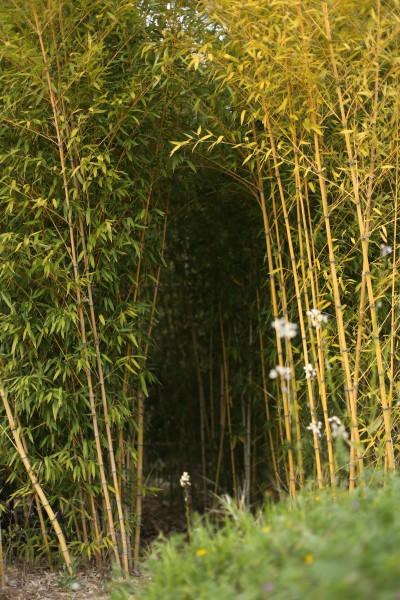
Photo Credit: Srđan Tutić
About the Nove Starine Park in Solin
Sculpture and concept artist Ivan Tokić turns his ambitions to the sustainable project - Nove Starine Park development, with one 10,000 square meter forest in Solin. Set deep in the heart of mother natures dwelling place and neighbouring the ancient city of Salona --capital to the Roman province of Dalmatia, and birthplace to Emperor Diocletian lies the Nove Starine Park; home to this emerging artistic community.
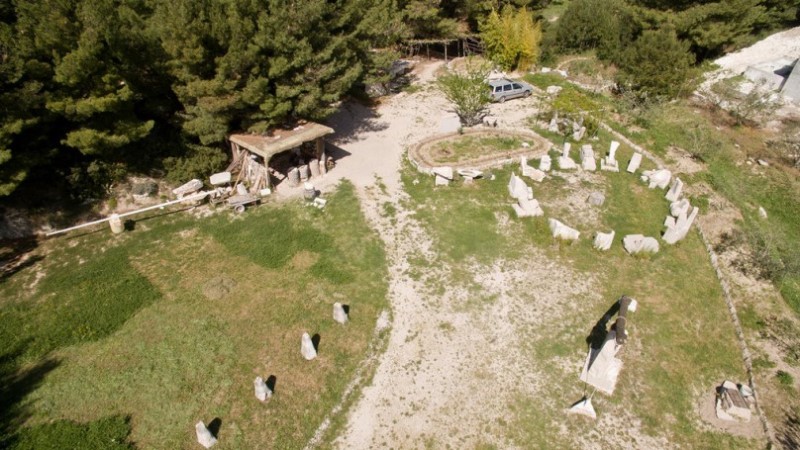
Photo Credit: Ivan Tokić, the idyllic setting of Nove Starine Park
Nove Starine Park boasts everything from an outdoor cinema to a sauna and climbing gym, set amongst old pines stretched from a bed of limestone soil. Offering respite and shared meals to an array of international travellers willing to volunteer their skills, often escaping the city life in countries such as France, Holland and Germany; the sanctuary has taken on a charm unlike any other near the Adriatic coastline.
Lochlan, who stayed with Ivan at Nove Starine Park for three weeks in late 2017 described it as a "diamond tucked away in a beautiful forest reserve".
What inspired the development, and what's in store for the future?
"I started Nove Starine Park almost by accident, it was totally spontaneous and I actually wanted to be an actor prior to this" Ivan explains, as he walks the grounds. “I didn’t have food, so I grew some, and though deep into the philosophy of healthy soil, I used mostly intuition and communication to understand the natural environment. I call it intuition agriculture”.
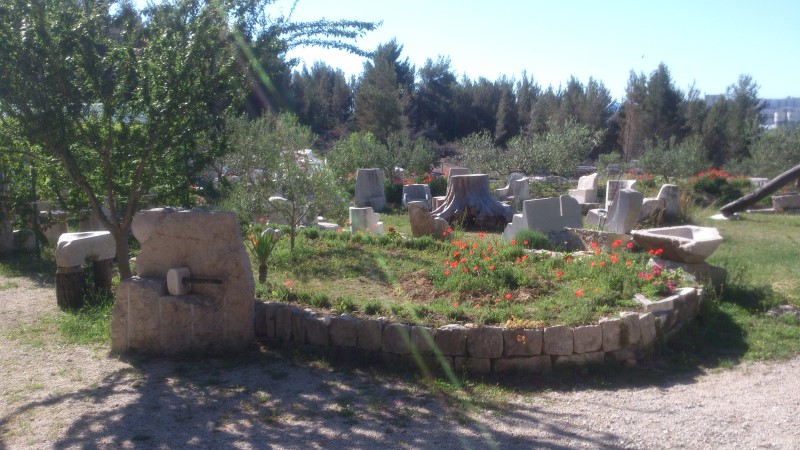
Photo Credit: Ivan Tokić
Ivan hopes to host more travellers and local community interested in the project, welcoming those who would be willing to work for board. Individuals specifically adept with social media and fundraising, armed with motivation to bring new life to its collaborative design are encouraged to get in touch through the Nove Starine Facebook page.
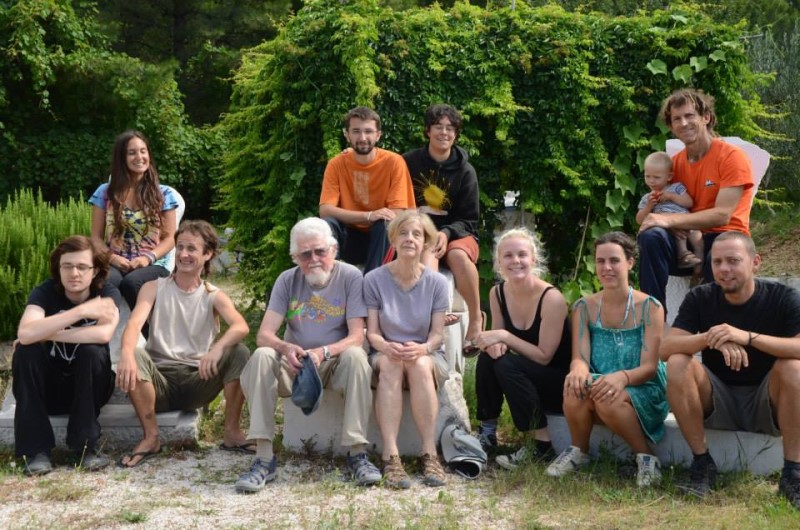
Photo Credit: Ivan Tokić, international visitors and friends of Nove Starine Park
“We have many projects and ideas, and because there is so much space and freedom here, our only limitation is finding the right helping hands to make it happen. We have an outdoor cinema on a stage that would greatly benefit from some experienced minds, to perhaps take over for the summer months and put on some events/evenings.
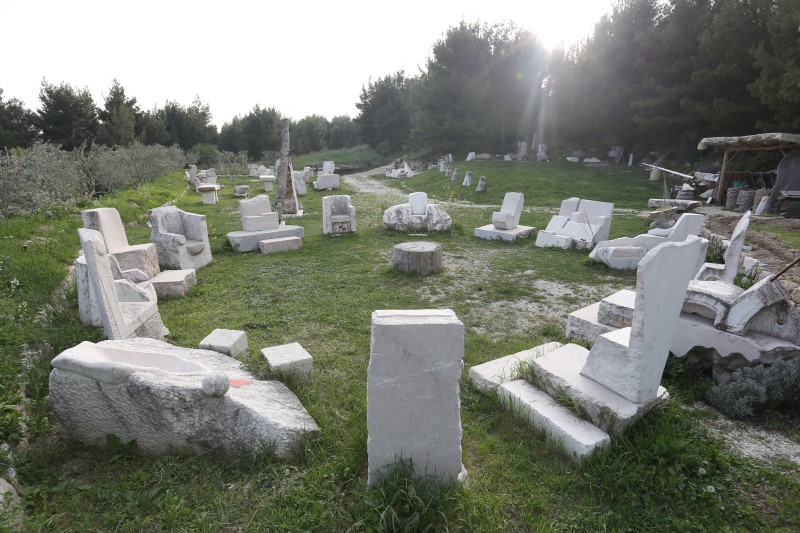
Photo Credit: Ivan Tokić
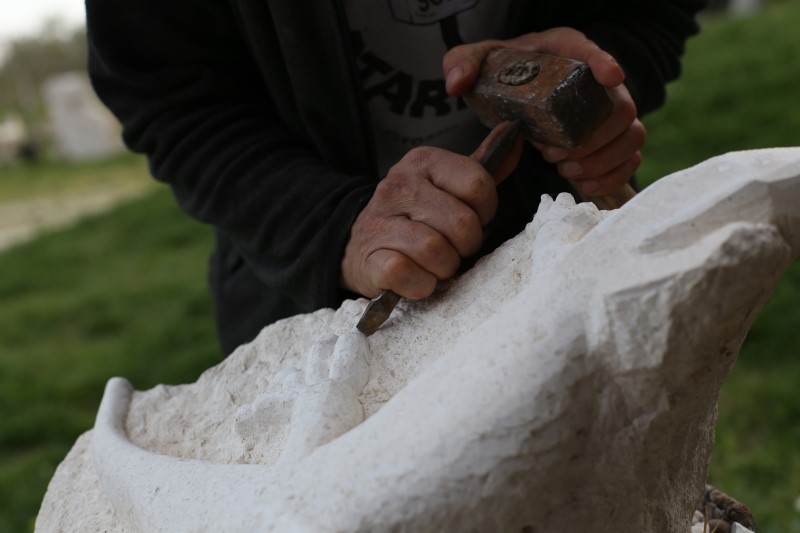
Photo Credit: Srđan Tutić
It's really important that the local people are invited to be a part of what is happening here, too. We need all the support we can get to be successful.”
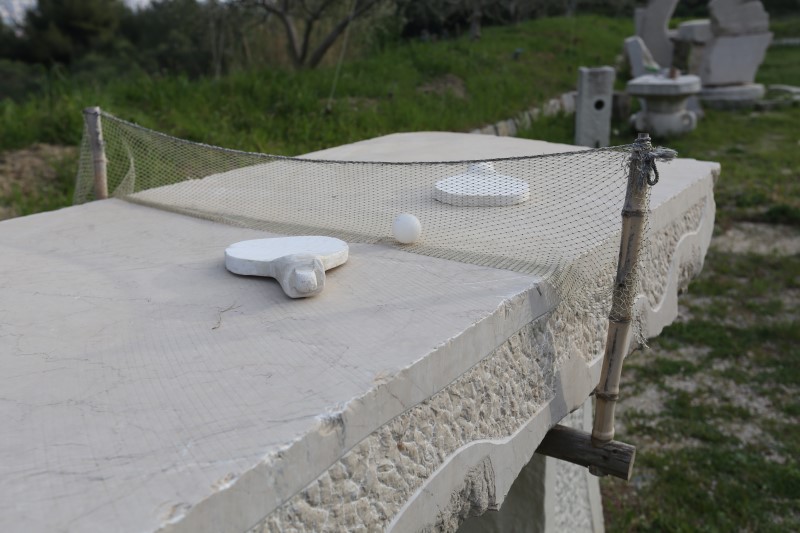
Photo Credit: Srđan Tutić
Nostalgic for times spent living in the thick of Suffolk's oak and hornbeam, framing the picturesque Norfolk border of England, I quickly found myself imagining the off-grid pace once more; away from the Mittel-Europe grind of concrete jungles and densely carbonated air. In balance though, the city life is convenient, and if you've ever stripped naked and stood in an oversized woodland with a camper’s shower, hung precariously on a branch, thrashing a sack of unforgivingly cold water over you, you'll know the simple life, although whimsical and romantic in its essence, is not for the faint-hearted.
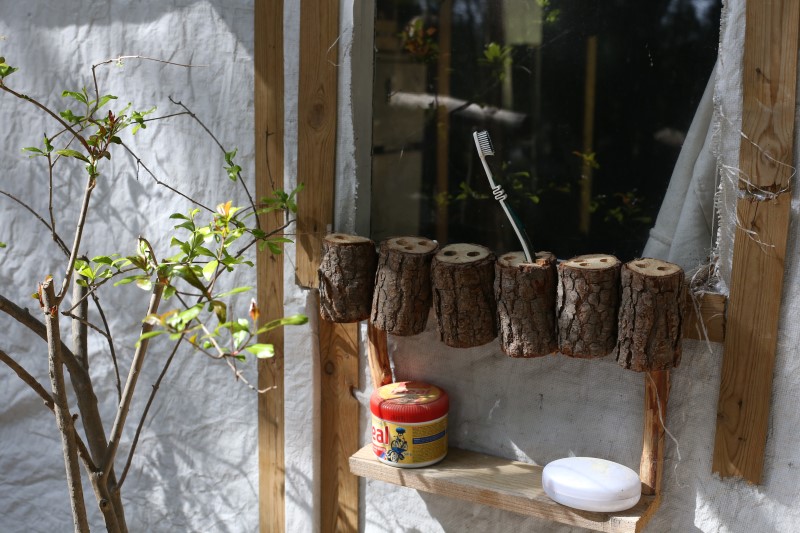
Photo Credit: Srđan Tutić
The project plans to continue in its mission to demonstrate sustainable practices symbiotic with the natural environment, alongside a stone carving school and traditional olive pressing on-site starting October this year. Ivan finished by saying “the whole thing [project] has been a huge learning process, it’s really not about the destination, just the process.”
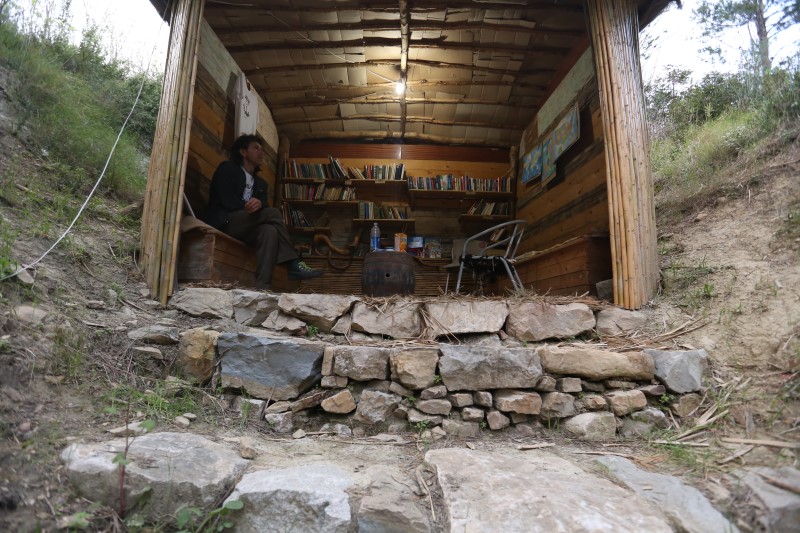
Photo Credit: Srđan Tutić
For more news from Split and surrounding, visit Total Split.
Lastovo Development Project Goes Ahead Thanks to French SMILO Program
Good news for the southern Dalmatian island of Lastovo as no less than a French organisation is set to help the islanders with their management of their resources and further their sustainable development.
As Morski writes on the 12th of January, 2019, SMILO (The small islands organisation) is a French association that has launched an international program to help islands less than 150 km2 in size who want to improve their management of resources, according to Vjeran Filippi, President of local action group LAG 5, which belongs to the Dubrovnik-Neretva County and consists of five parts: Korčula, Mljet and Lastovo, the Pelješac peninsula and Dubrovnik primorje.
LAG 5 includes twelve local self-government units: Blato, Dubrovnik primorje, Janjina, Korčula, Lastovo, Lumbarda, Mljet, Orebić, Smokvica, Ston, Trpanj and Vela Luka. Island councils have also been formed for the sole purpose of implementing the program on Lastovo and other islands.
In cooperation with the nature park of the archipelago of Lastovo, and as part of the aforementioned LAG 5 work plan for Lastovo, the island council was formed, and a basic analysis of the needs for sustainable development of the island of Lastovo, as well as strategic project proposals in the field of economic development was elaborated for the implementation of the SMILO Program, added Vjeran Filippi. The project included the local county and the board for the islands as operational support in proper communication with various national bodies.
Katarina Slejko, LAG 5's manager, added that for the island of Lastovo, the SMILO program will facilitate the realisation of projects that local stakeholders regard as crucial phases of the transition to sustainable economic development based on eco tourism, with the promotion of olive oil production and a local market, as well as a supporting project for storing the product.
The islands which choose to establish their cooperation with France's SMILO association can count on a set of experts to help launch their respective sustainable development projects, as well as receive a special label (the SMILO label) that will enable them to communicate with other islands involved in the program and increase their chances of getting their hands on numerous development funds, said Maja Rešić.
Make sure to stay up to date with our dedicated lifestyle page for more information. If it's just Dubrovnik and the extreme south of Dalmatia you're interested in, give Total Dubrovnik a follow.
Click here for the original article by Niko Peric for Korcula online
Victory for Adriatic Sea: Croatia and Italy Ban Fishing in Jabuka Pit
Victory for the Adriatic Sea; after several months of tense negotiations between Croatian and Italian administrations, an agreement has finally been reached to ban fishing near the Jabuka Pit in the Adriatic Basin from 1 September 2017 to 31 August 2020.
First Croatian Re-Use Centre Opened
Discarded objects in Prelog will find new purpose instead of ending up at the dump
Croatian Island to Become Energy Independent Island, First in Region
The entire Island of Krk recycles 50 percent of its waste, with that number rising to 60 percent last December. To compare, the Croatian average is 15 percent, while Zagreb is at 1 percent
The First Zero-Waste Store Opens in Zagreb
“Zero Waste” stores have been making a global movement in recent years, growing in popularity in Europe and even making their way across the seas to America and Australia, and now Zagreb joins the movement with the opening of Špeceraj.
What Happens to Recycling in Croatia?
On Thursday 16th March 2017, Total Eco Croatia visited Jolly to speak to manager Jurica Šarić to learn more about the recycling process.
Fabula Organic Pencil, Another Great Croatian Innovation Story
Fabula Organic Pencil is a ‘home-grown’ sustainable innovation that is ready to take the market by storm.
Meet Villa Pape: a Green, Georgeous, Bed and Breakfast in Trogir
Villa Pape is a green, family-run, bed and breakfast in the gorgeous picturesque town of Trogir.

